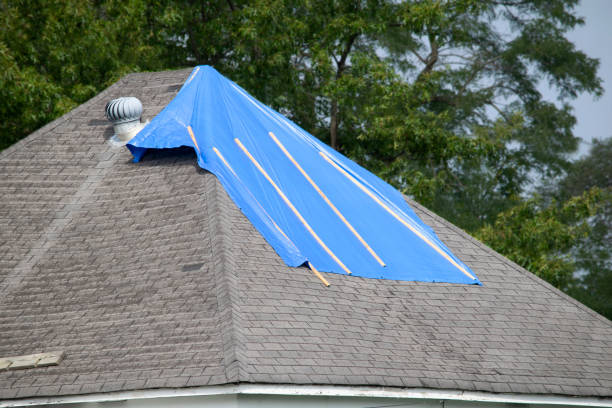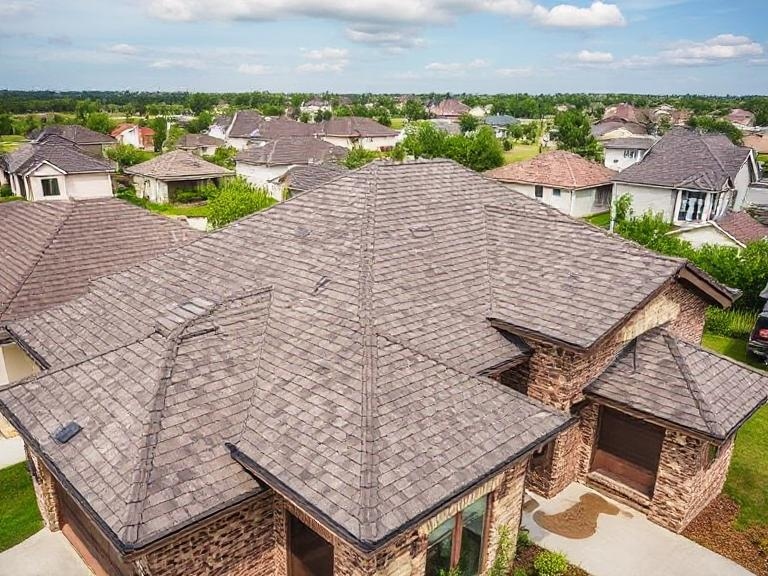Who's Who in Roofing: What Is The Difference Between A Roofer And A Contractor?
Introduction
When it comes to roofing, understanding the various roles within the industry is crucial for homeowners and business owners alike. You may have heard terms like "roofer," "roofing contractor," or even "roofing specialist." But what do these titles really mean? Why is it important to differentiate between them? In this comprehensive guide, "Who's Who in Roofing: Differences Between Roofers, Contractors, and Their Industry Titles," we'll explore the nuances of each role, the skills they bring to the table, and how their expertise can impact your roofing project.

Who's Who in Roofing: Differences Between Roofers, Contractors, and Their Industry Titles
Understanding the distinctions between roofers and roofing contractors can save you time, money, and a lot of headaches. While both are integral parts of the roofing process, their responsibilities can differ significantly.
What is a Roofer?
A roofer is typically a skilled tradesperson who specializes in installing roofs. This title often encompasses various tasks related to roof installation, repair, or maintenance.
- Key Responsibilities:
- Installing roofing materials such as shingles, tiles, or metal.
- Conducting repairs on damaged roofs.
- Performing routine maintenance checks to ensure longevity.
Roofers generally focus on practical work rather than administrative duties. They’re often found on job sites carrying out hands-on tasks that require physical labor and technical skill.
What is a Roofing Contractor?
On the other hand, a roofing contractor usually refers to a business entity or individual that manages roofing projects from start to finish. While they might employ roofers to perform the physical labor, their role extends beyond just putting shingles on a roof.
- Key Responsibilities:
- Overseeing project management.
- Handling permits and licenses.
- Managing budgets and timelines.
- Coordinating with suppliers for materials.
Roofing contractors have a broader scope of responsibility compared to roofers. They act as the point of contact for clients and are responsible for ensuring that all aspects of the project meet quality standards.
The Importance of Understanding These Roles
Why should you care about these distinctions? For one thing, knowing who does what can help you make informed decisions about hiring for your next roofing project. Whether you're seeking someone to fix a leak or planning an entire roof replacement, understanding these roles will help you choose the right professional for your needs.
Types of Roofing Professionals
While most people are familiar with roofers and contractors, there are several other titles in the industry worth noting:

1. General Contractor
Often overseeing multiple types of construction work—not just roofing—a general contractor coordinates various subcontractors (including roofers) during larger projects.
2. Roofing Specialist
This title usually pertains to individuals who focus on specific types or styles of roofs (e.g., flat roofs or green roofs). A roofing specialist brings unique knowledge about particular materials and techniques relevant to those styles.
3. Roof Inspector
Before any work begins—or after it’s completed—a roof inspector assesses the condition of existing roofs. They provide detailed reports that can influence repair or replacement decisions.
4. Estimator
An estimator evaluates project costs based on materials needed and labor involved—essentially providing clients with financial expectations before any work starts.
How Do These Roles Interact?
Understanding how these titles interact can provide insight into how your roofing project will unfold:
- A homeowner may first contact a general contractor for renovations.
- The general contractor might bring in an estimator to assess costs.
- If roofing is part of the project scope, they'll hire either an experienced roofer directly or contract with a specialized roofing contractor.
- Finally, once installation is complete, a roof inspector may be called upon for validation before final payments are made.
This chain illustrates how interconnected yet distinct these roles are within the industry.
Key Skills Required in Each Role
Each position within the roofing industry requires specific skills:
Roofer Skills
- Proficiency in using tools safely.
- Knowledge about different types of materials used in roofing.
- Strong problem-solving abilities during installations or repairs.
Contractor Skills
- Project management expertise.
- Strong communication skills for liaising with clients and subcontractors.
- Financial acumen for budgeting appropriately across projects.
Licensing Requirements by State
In many areas across America, licensing requirements vary widely:
| State | Roofer License Required | Contractor License Required | |---------------|-------------------------|-----------------------------| | California | Yes | Yes | | Texas | No | Yes | | Florida | Yes | Yes | | New York | Varies | Yes |
Make sure you check local laws as they apply specifically to your area!
Common Misconceptions About Roofing Roles
Misunderstanding these roles can lead homeowners astray when seeking assistance:

All Roofers Are Contractors: Not true! While all licensed contractors may employ roofers for jobs requiring manual work—roofers themselves don’t necessarily have contracting authority unless they’re also certified as such.
Roof Inspectors Are Just Salesmen: Many people think inspectors only exist to sell services; however reputable inspectors offer invaluable assessments that help protect investments over time!
You Should Always Choose Price Over Experience: Opting solely based on price can lead down costly roads if quality isn’t prioritized—consider background checks rather than just estimates!
Finding Reliable Roofing Professionals
So how do you find trustworthy professionals?
Check Reviews: Websites like Angie’s List provide user-generated reviews that can guide you toward reputable contractors or roofers based on past experiences.
Ask For Recommendations: Friends who’ve recently undertaken similar projects may provide valuable insights into whom they hired!
Verify Credentials: Always ask potential hires about their licenses/insurance coverage before signing contracts—this protects both parties involved!
Get Multiple Quotes: Don’t rush into making decisions; seeking varied perspectives helps ensure fairness while allowing comparisons across services offered by different professionals!
Cost Considerations When Hiring Roofer vs Contractor
Let’s dive into some financial aspects associated with hiring either type:
1. Average Costs
- Basic repairs by a roofer could range from $150-$500 depending on job complexity.
- Full replacements through contractors generally fall between $5K-$15K based upon material choices & square footage involved!
2. Labor vs Material Costs
- Typically speaking—labor constitutes roughly 60%+ total expenses incurred during installation processes overall! Thus—it’s crucial assessing whether upfront quotes include all necessary factors before moving forward!
FAQs
Q1: What qualifications should I look for in a roofer? A1: Look for certifications from recognized organizations like GAF or Owens Corning alongside proof of insurance covering liability/workman’s comp policies!
Q2: How long does it usually take to replace an entire roof? A2: Depending on size/materials chosen—most residential replacements span around 1-3 days maximum barring any weather interruptions occurring during this timeframe!
Q3: Can I negotiate prices with my contractor/roofer? A3: Absolutely! Many professionals expect negotiations—just ensure fairness prevails without compromising quality standards throughout discussions!
Q4: What are common signs my roof needs repair? A4: Look out for visible leaks inside ceilings/walls; sagging structures; missing shingles; noticeable granules accumulating below gutters indicating wear over time!
Q5: Is DIY roofing advisable? A5: Unless you're experienced/a professional—it’s generally discouraged due risks posed falling accidents/unforeseen complications arising through improper installations leading further damage down line!
Q6: How do I maintain my new roof after installation? A6: Regular inspections every few years coupled with cleaning debris from gutters & checking flashings around chimneys/skylights play vital roles protecting integrity long-term!
Conclusion
In summary, understanding "Who's Who in Roofing" is essential when embarking upon any construction scr247.com journey involving rooftops! Differentiating between skilled tradespeople like roofers versus more management-oriented figures such as contractors ensures clarity throughout processes while enabling efficient collaboration among teams involved—all aimed at achieving safe durable structures overhead! As always remember—it pays off doing thorough research beforehand guaranteeing optimal choices made along way towards successful outcomes desired!